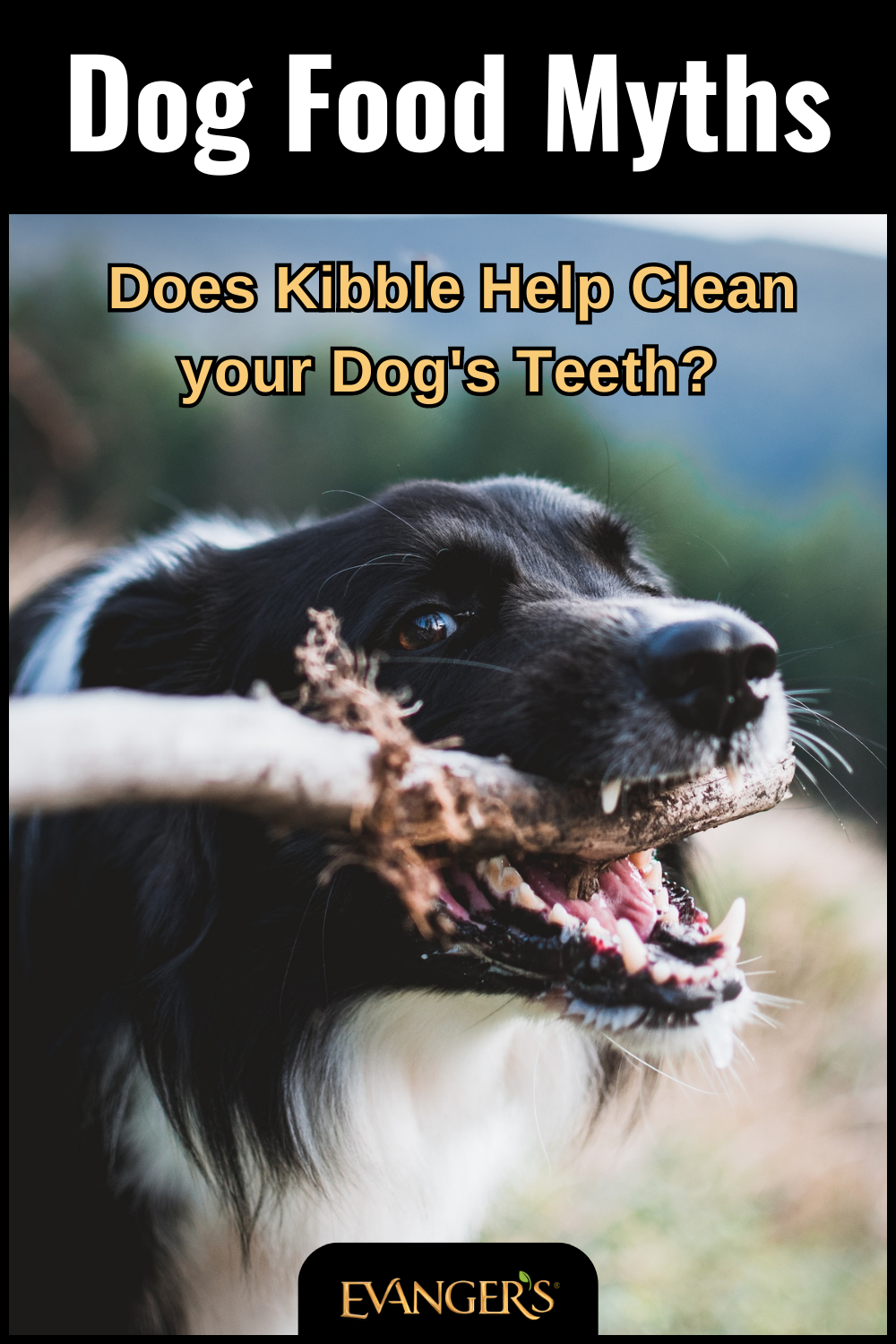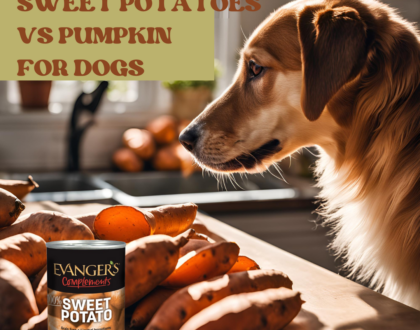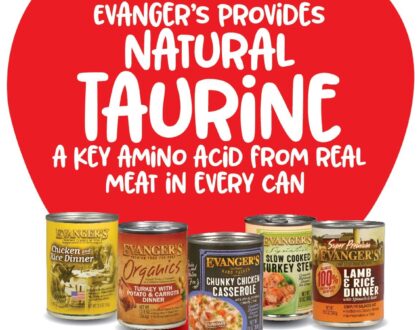Dog Food Myths: Does Kibble Help Clean your Dog’s Teeth?

by Ian Germann
One of the most prevalent myths about dog food is that kibble can help clean your pup’s teeth. Even today, many sites still publish articles about the supposed benefits that kibble has on dogs’ teeth. While there may be certain types of kibble that have been specifically designed to help remove plaque and tarter from your dog’s teeth, kibble as a whole is not good for their overall oral health.
Dog’s teeth and mouth structures are designed specifically to eat meat, not to crunch on kibble. Saying that eating kibble helps clean their teeth is equivalent to eating cereal and expecting it to clean our teeth; it just doesn’t make sense. A vast majority of kibble is not abrasive enough to remove plaque and tartar buildup on its own. In addition, most dogs do not chew their food long enough for the kibble to have a significant impact on their dental health. Instead, dogs tend to swallow their kibble whole or in large pieces, which can lead to digestive issues and even choking hazards.
Furthermore, most kibble contains lots of carbohydrates which can cause plaque and tarter buildup. Simple carbohydrates, such as sugars, can stick to a dog’s teeth and promote the growth of bacteria that can cause tooth decay and gum disease. This is because bacteria in the mouth use sugars to produce acid, which can erode tooth enamel and lead to cavities.
For the best oral health, you should be feeding your dog wet food diet that’s high in meat and low in carbs. Here are some of the reasons why wet food is good for dog’s oral health:
Hydration: Wet food has a higher moisture content than dry food, which can help keep a dog’s mouth hydrated and moist. This can reduce the risk of dry mouth, which can contribute to bad breath, tooth decay and gum disease.
Soft texture: Wet food has a softer texture than dry food, which means it is less likely to stick to a dog’s teeth and gums. This can help reduce the buildup of plaque and tartar, which can contribute to dental problems.
Increased chewing: Dogs may have to chew their wet food more thoroughly than dry food, which can help strengthen their jaw muscles and promote better oral health. Chewing can also help scrape away plaque and tartar from their teeth.
If you want to improve your dog’s oral health without a big time commitment, Evanger’s canned foods have no added carbohydrates, with meaty meals made from high-quality, locally sourced ingredients.
Recommended Posts

Why Canned Sweet Potato is Better Than Canned Pumpkin for Dogs
September 27, 2024

DCM in Dogs: What Is It and What Should I Do?
January 08, 2024

What to Feed a Dog with Hip Dysplasia
August 21, 2023


